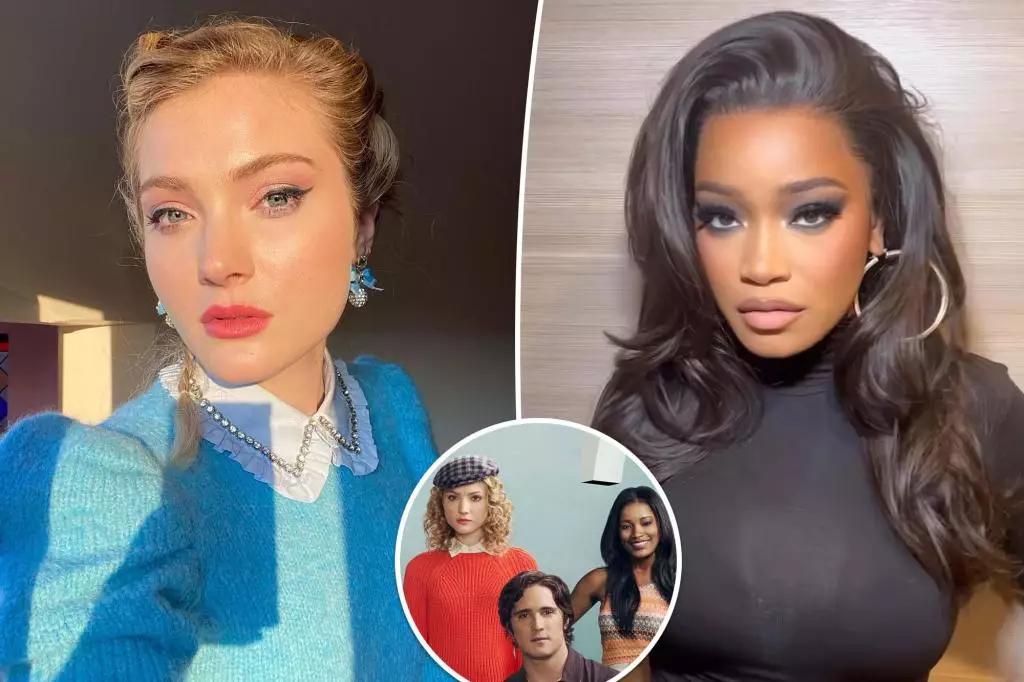In the world of entertainment, speaking out against injustices can often come with a hefty price—an unfortunate reality that many in the industry know all too well. Skyler Samuels, a key figure in the acclaimed television series “Scream Queens,” recently demonstrated her support for fellow actress Keke Palmer, commending her for addressing alleged racist remarks made by a co-star on set. This public act of solidarity not only highlights the importance of speaking out against discrimination but also underscores the need for unity among actresses—a reminder that their voices are more powerful when amplified together.
Samuels, who played Grace Gardner in “Scream Queens,” revealed that working on the show was fraught with challenges. Reflecting on her experiences, she acknowledged Keke Palmer as a beacon of support amidst what might have been a lonely fight. “Scream Queens,” produced by Ryan Murphy, may have gained popularity for its edgy and satirical approach, but it also harbored a complex environment for its actors. Samuels’ recognition of Palmer’s bravery portrays a critical insight: advocating for oneself and others often entails risks, particularly in spaces where power dynamics and toxic behavior can thrive unchecked.
The underlying issue in Samuels’ tribute to Palmer is an acknowledgment of the collective duty that falls upon those within the industry to challenge discriminatory behavior. Palmer’s account, shared in an upcoming memoir titled “Master of Me: The Secret to Controlling Your Narrative,” depicts an incident in which a co-star dismissed her attempts at promoting camaraderie with a derogatory comment. Such narratives not only affirm the need for solidarity among actresses but also open discussions about the pervasive existence of racism in the entertainment sector. This moment serves as a reminder that the onus is not solely on victims of racism to speak up; it is equally crucial for allies to support and validate their experiences.
Palmer’s proactive stance in calling out discrimination can also be viewed through the lens of influence and responsibility. As successful actresses, both she and Samuels wield the power to shape conversations around race and inclusivity, and their willingness to confront these issues is instrumental in fostering a culture of accountability. Additionally, Palmer’s personal narrative goes beyond just moments of conflict; it also indicates her resilience in navigating challenges as she balanced multiple commitments during her career.
As the release of Palmer’s memoir approaches, the entertainment industry stands at the precipice of change, fueled by bold declarations from those unwilling to remain silent. The support expressed between Samuels and Palmer is emblematic of a broader necessity for change—a call for transparency, inclusivity, and respect on set. With the powerful combination of personal narratives and public backing, there is a potential for transforming the way such incidents are handled in Hollywood. It’s a long road ahead, but with discernible courage like that of Palmer and Samuels, a transformative dialogue has already begun to take shape.

Leave a Reply